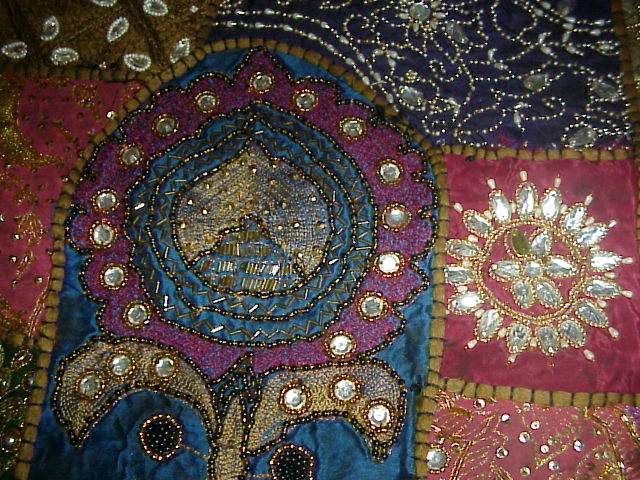===
0120,
2
===

=== |
 |
muyassar : 'Rendered easy, facilitated; easy, feasible, practicable; favourable; —ready, prepared; —obtained, attained; attainable, obtainable, procurable'. (Platts p.1105)
ḳhvud-numā : 'Ostentatious, self-conceited, vain, proud'. (Platts p.495)
yūñ : 'Thus, in this wise, in this manner; —just so, for no particular reason; without just ground, vainly, idly, causelessly, gratuitously'. (Platts p.1253)
ittifāq : 'Concurrence, agreement, accord, correspondence, coincidence; equality; union, unity, concord, harmony, unison, conformity; amity, friendship, affection; similarity of disposition; assent, consent; concert, combination, confederation, conspiracy, collusion; probability, contingency, case, event; circumstance, incident, affair, particular; opportunity; accident, chance, lot, fortune'. (Platts p.16)
FWP:
SETS == A,B; GENERATORS; KAHAN; MULTIVALENT WORDS ( yūñ )
MOTIFS == MIRROR
NAMES
TERMS == 'DELICACY OF THOUGHT'; METAPHORA number of devices set this verse up to be a 'generator', so ambiguous and multivalent that new meanings just can't be stopped from pouring out of it. First of all it's an 'A,B' verse, in which the two lines are semantically quite separate, so that we're left to decide for ourselves how to connect them. The connective possibilities are multiplied, too, by the fact that the second line describes a sudden change of state, so that the first line might be linked either to the previous or general state ('How could I ever have seen the beloved-- the whole world conspired to make it impossible, even the mirror broke!'), or to the newly resulting one ('How could I ever have seen the beloved, except that fortunately the mirror broke!').
Second, the excellently chosen word kahāñ can be taken either metaphorically, as something like 'how?', or literally as 'where?'. The first reading pushes the verse toward abstraction (as if it needed any pushing!), while the second points directly to the (breaking of the) mirror (except in a mirror, 'where' could I see the beloved?).
Third, the usefully multivalent yūñ can either mean-- see the definition above-- 'like this, in this way' (thus forming part of an explanation or account of some kind); or else it can mean 'for no particular reason, causelessly' (thus denying the possibility of any explanation or causal account). In this latter sense, yūñ and ittifāq (in its sense of 'chance, coincidence') work elegantly together. Some other lovely yūñ verses: {785,6}; {1318,1}, {1336,7}, {1352,2}. There are also yūñ hī verses: {696,5}; {1554,7}.
SRF discusses some of the possible readings of the 'mirror'. He finds the idea that it's an actual mirror to be the least plausible, and the reading of the mirror as 'universe' and 'lover's heart' to be far more satisfactory. I agree, but I would frame the reasons differently. For there's an underlying problem that I keep coming back to: whatever the nature of the mirror, why would 'you' be available to 'me' in a mirror anyway? A mirror, after all, reflects the face of the person who is looking into it, so how could the speaker see the beloved in it, and not himself? Since we're not talking about spies or contortionists here, the only way is for it to be not really a mirror at all, but something that's already a metaphor.
The universe is a 'mirror' of God's presence, because it embodies, and thus 'reflects', God's creative power. Thus in such a so-called, metaphorical-only 'mirror' one can 'see' God-- except of course that this mirror immediately 'breaks', which would seem to be a problem, since how does the universe 'break'? SRF most ingeniously reads this 'breaking' of the mirror as the appearance of mankind on the scene. Then-- does every mirror-fragment, every human being, act as his own mirror of God's presence? Or does the vision of God then become unattainable? It's left to us to decide.
The lover's heart is a 'mirror' of the beloved, because it obsessively watches and responds to her every move, the way a mirror does. And of course that heart is always likely to 'break', with or without provocation. But on this reading, I don't see how 'face to face with me' [mere rūbarū] makes any sense. In what way could the speaker's heart be 'face to face' with him, either in general or at the moment of beholding the beloved?
My guess is that what really inspired Mir to frame the verse was ḳhvud-numā , with its superlative wordplay possibilities involving the literal 'self-showing' and the metaphorical 'vain' (see the definition above).
Compare Ghalib's equally strange and enigmatic counterpart verse:
G{208,6}.